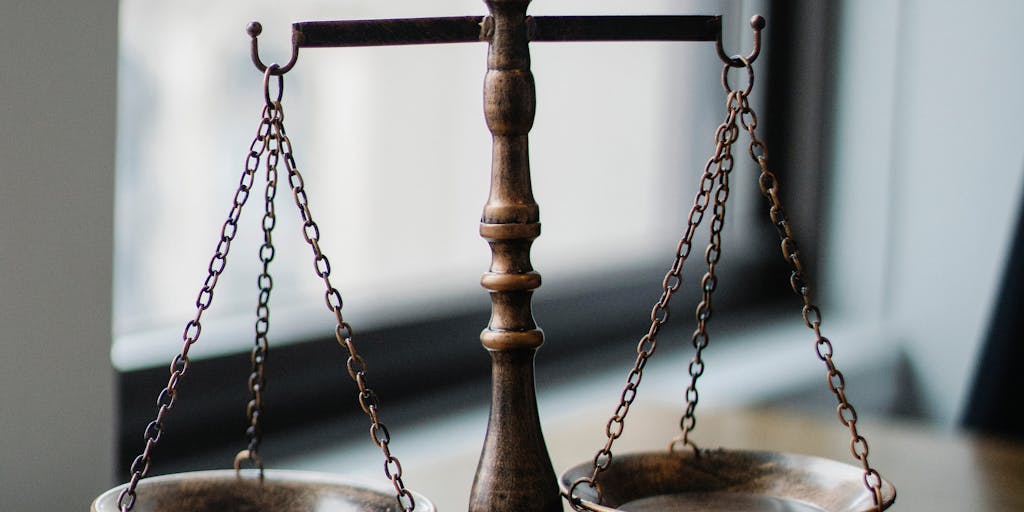When we think of wealth, certain professions often come to mind, and lawyers are certainly among them. The legal field is not just about justice; it can also be a lucrative career path. But who are the highest paid lawyers in the United States? What sets them apart from the rest? Let’s dive into the world of legal eagles who have soared to incredible financial heights.
The Top 10 Richest Lawyers in America

In a profession where success is often measured in billable hours and high-profile cases, the richest lawyers have carved out their niches in various specialties, from personal injury to corporate law. Here’s a closer look at the top ten lawyers who have amassed extraordinary fortunes.
#1 – Peter Angelos | $2 Billion
At the pinnacle of the legal profession stands Peter Angelos, a name synonymous with success in the world of law. With a staggering net worth of $2 billion, Angelos has made his mark primarily through his work in personal injury and medical malpractice cases. But what truly sets him apart is his ability to turn high-stakes litigation into a profitable venture.
Angelos gained national prominence in the 1980s when he represented thousands of clients in lawsuits against tobacco companies, claiming that their products caused cancer. His firm, Angelos Law Group, became a powerhouse, and his success in these cases not only brought him wealth but also a reputation as a fierce advocate for victims’ rights.
What’s fascinating about Angelos is his approach to law. He often emphasizes the importance of empathy in his practice, stating, “You have to understand the pain and suffering of your clients to represent them effectively.” This perspective has not only won him cases but has also endeared him to many who have sought his help during their most challenging times.
Moreover, Angelos is not just a lawyer; he’s also a savvy businessman. He owns the Baltimore Orioles, a Major League Baseball team, which adds another layer to his financial portfolio. This blend of legal acumen and business savvy illustrates how the highest paid lawyers often leverage their skills beyond the courtroom.
In a world where legal battles can be both emotionally and financially draining, Angelos stands as a beacon of hope for many. His story reminds us that behind every successful lawyer is a commitment to justice and a deep understanding of the human experience.
#2 – Jerry Reinsdorf | $1.8 Billion
When you think of the highest-paid lawyers in the United States, Jerry Reinsdorf might not be the first name that comes to mind. However, his journey is a fascinating blend of law, business acumen, and sports management. Reinsdorf, primarily known as the owner of the Chicago Bulls and the Chicago White Sox, has a legal background that has significantly influenced his business decisions.
Reinsdorf earned his law degree from the George Washington University Law School and began his career in the legal field. His legal expertise allowed him to navigate complex business deals and negotiations, particularly in the sports industry. For instance, his strategic approach to the NBA and MLB contracts has not only brought him immense wealth but also transformed the teams he owns into championship contenders.
What’s particularly interesting about Reinsdorf is how he leveraged his legal knowledge to create value in sports franchises. He famously negotiated the Bulls’ television contracts, which played a crucial role in the team’s financial success during the 1990s. This ability to merge law with business strategy is a testament to how legal professionals can thrive beyond traditional courtroom settings.
In a world where sports and law intersect, Reinsdorf stands out as a prime example of how legal expertise can lead to extraordinary financial success. His story encourages us to think about the diverse paths a legal career can take, often leading to unexpected and lucrative opportunities.
#3 – Bill Neukom | $850 Million
Bill Neukom is another name that resonates in the realm of high-earning lawyers, with a net worth of approximately $850 million. His career is a remarkable narrative of how legal prowess can lead to significant influence and wealth. Neukom served as the managing partner of K&L Gates, one of the largest law firms in the world, where he honed his skills in corporate law and litigation.
However, what truly sets Neukom apart is his role as the former president of the San Francisco Giants. Under his leadership, the Giants not only won the World Series in 2010, but they also saw a substantial increase in their franchise value. Neukom’s legal background played a pivotal role in negotiating lucrative sponsorship deals and navigating the complexities of sports law.
His journey illustrates a vital lesson: the legal field is not just about practicing law; it’s about understanding how to apply that knowledge in various contexts. Neukom’s ability to transition from a law firm to a major sports franchise showcases the versatility of a legal career. It prompts us to consider how our skills can be applied in unexpected ways, potentially leading to remarkable achievements.
#4 – Judith Sheindlin | $440 Million
Judith Sheindlin, famously known as “Judge Judy,” is a household name and a prime example of how a legal career can transcend the courtroom. With a net worth of around $440 million, Sheindlin has turned her legal expertise into a media empire. After serving as a family court judge in New York, she transitioned to television, where her no-nonsense approach and sharp wit captivated audiences.
What makes Sheindlin’s story particularly compelling is her ability to connect with the public. Her show, “Judge Judy,” not only entertains but also educates viewers about the legal system. Sheindlin has often emphasized the importance of common sense in law, making legal concepts accessible to everyday people. This approach has resonated with millions, proving that legal knowledge can be both impactful and profitable.
Moreover, Sheindlin’s success highlights the evolving nature of legal careers. In an age where media and entertainment intersect with law, her journey encourages aspiring lawyers to think outside the box. It’s a reminder that the skills we acquire in law school can lead to diverse and fulfilling careers, even in the most unexpected arenas.
#5 – Willie E. Gary | $215 Million
When you think of the highest-paid lawyers in the United States, Willie E. Gary is a name that often comes to mind. With a staggering net worth of $215 million, Gary’s journey is nothing short of inspiring. Born in a small town in North Carolina, he faced numerous challenges, including poverty and racial discrimination. Yet, he transformed these obstacles into stepping stones, ultimately becoming one of the most successful trial lawyers in the country.
Gary is renowned for his work in personal injury and wrongful death cases, often representing clients against large corporations. One of his most notable cases involved a $500 million verdict against the tobacco industry, which showcased not only his legal prowess but also his commitment to justice. His ability to connect with juries and tell compelling stories has been a hallmark of his success. As he once said, “I don’t just represent clients; I represent people.” This philosophy resonates deeply with many, as it emphasizes the human element in legal battles.
Moreover, Gary’s impact extends beyond the courtroom. He is a philanthropist, investing in education and community development, which further cements his legacy. His story serves as a reminder that with determination and a strong moral compass, one can achieve greatness while uplifting others along the way.
#6 – Robert Shapiro | $120 Million
Next on our list is Robert Shapiro, a name that many recognize from the high-profile O.J. Simpson trial. With a net worth of $120 million, Shapiro has made a significant mark in the legal world, not just as a defense attorney but also as a savvy businessman. His career spans decades, and his expertise in criminal defense has earned him a reputation as one of the best in the field.
Shapiro’s approach to law is both strategic and innovative. He understands the importance of media in high-stakes cases, often leveraging public perception to his advantage. This was particularly evident during the Simpson trial, where he skillfully navigated the complexities of the legal system while keeping the public engaged. His ability to communicate effectively, both in and out of the courtroom, has been a key factor in his success.
Beyond his legal career, Shapiro is also an entrepreneur. He co-founded the legal technology company LegalZoom, which has revolutionized how individuals access legal services. This venture not only showcases his business acumen but also his commitment to making legal assistance more accessible to the average person. Shapiro’s journey illustrates that the legal profession can be both a noble pursuit and a lucrative career, especially when one is willing to innovate and adapt.
#7 – John Branca | $100 Million
Finally, we arrive at John Branca, whose net worth of $100 million is a testament to his expertise in entertainment law. Branca has represented some of the biggest names in the music industry, including Michael Jackson and The Rolling Stones. His deep understanding of the entertainment landscape has allowed him to navigate complex contracts and negotiations, ensuring that his clients receive the best possible outcomes.
Branca’s career is a fascinating blend of legal expertise and passion for music. He often speaks about the importance of protecting artists’ rights and ensuring they receive fair compensation for their work. His dedication to his clients is evident in the way he approaches each case, treating them not just as legal matters but as personal stories that deserve to be told.
One of Branca’s most significant achievements was his role in managing Michael Jackson’s estate after the pop icon’s death. His strategic decisions helped to revitalize Jackson’s brand and generate substantial revenue, showcasing his ability to think outside the box. Branca’s story is a reminder that success in law often comes from a combination of passion, expertise, and a genuine desire to help others achieve their dreams.
#8 – Roy Black | $65 Million
When you think of high-stakes legal battles, Roy Black’s name often comes to mind. With a staggering net worth of $65 million, Black has carved out a niche for himself as a formidable criminal defense attorney. His career is a testament to the power of reputation and expertise in the legal field.
Black gained national attention for his role in high-profile cases, including the defense of William Kennedy Smith, who was accused of rape in the early 1990s. Black’s skillful defense not only acquitted Smith but also showcased his ability to navigate the complexities of the legal system with finesse. This case was pivotal, as it not only elevated Black’s profile but also demonstrated the impact of a well-crafted defense strategy.
Beyond the courtroom, Black is also a successful author and speaker, sharing his insights on legal matters and the intricacies of criminal law. His ability to communicate complex legal concepts in an accessible manner has made him a sought-after commentator on various media platforms. This blend of courtroom prowess and public engagement has undoubtedly contributed to his impressive earnings.
In a world where legal battles can make or break reputations, Black’s story serves as a reminder of the importance of experience, strategy, and the art of persuasion in the legal profession.
#9 – William Barr | $50 Million
William Barr, the former Attorney General of the United States, is another name that resonates in the legal community, with a net worth of $50 million. His career spans decades, marked by significant roles in both the public and private sectors. Barr’s journey is a fascinating blend of legal expertise and political acumen.
Before his tenure as Attorney General, Barr served as the Deputy Attorney General and later as the Attorney General under President George H.W. Bush. His return to the role under President Donald Trump was met with both praise and controversy, highlighting the complex nature of legal and political intersections. Barr’s ability to navigate these waters has not only solidified his reputation but also significantly boosted his financial standing.
In addition to his government service, Barr has held various positions in private law firms, where he has leveraged his extensive experience to advise clients on regulatory and compliance issues. His insights into the legal landscape, particularly regarding federal law, have made him a valuable asset in the corporate world.
What can we learn from Barr’s career? It underscores the importance of versatility in the legal profession. Whether in public service or private practice, the ability to adapt and thrive in different environments can lead to substantial financial success.
#10 – George Conway | $39 Million
George Conway, known for his outspoken views on legal and political matters, has amassed a net worth of $39 million. As a prominent attorney and co-founder of the law firm Wachtell, Lipton, Rosen & Katz, Conway’s career is a fascinating study in the intersection of law and public discourse.
Conway gained significant media attention for his critiques of former President Trump, which often put him at odds with his wife, Kellyanne Conway, a senior advisor to Trump. This unique position has allowed him to leverage his legal expertise while engaging in national conversations about law and governance. His ability to articulate complex legal issues in a relatable way has resonated with many, making him a sought-after commentator.
His legal practice has also been marked by high-profile cases, including representing clients in significant corporate litigation. Conway’s success in these cases not only reflects his legal acumen but also his strategic thinking and negotiation skills.
In a world where legal opinions can shape public perception, Conway’s journey reminds us of the power of advocacy and the importance of standing firm in one’s beliefs. His story is a testament to how a legal career can extend beyond the courtroom, influencing broader societal discussions.
Who are the Richest Lawyers in America?

When we think of wealth, images of CEOs and tech moguls often come to mind. However, the legal profession has its own share of high earners, with some lawyers amassing fortunes that rival those of the most successful business leaders. Have you ever wondered who these legal titans are and what sets them apart? Let’s dive into the lives of the richest lawyers in America, exploring their backgrounds, careers, and the unique paths that led them to such impressive financial heights.
1. Jerry Reinsdorf—$2 Billion
Jerry Reinsdorf is a name that resonates not just in the legal world but also in the realms of sports and business. As the owner of the Chicago Bulls and the Chicago White Sox, Reinsdorf has made a significant impact on both teams, leading them to multiple championships. But what many may not know is that his journey began in the legal field.
Reinsdorf earned his law degree from the University of Chicago and initially practiced law before venturing into real estate and sports management. His legal expertise provided him with a solid foundation for negotiating contracts and navigating complex business deals. This blend of law and business acumen has been crucial in his success as a sports franchise owner.
According to a 2021 Forbes report, Reinsdorf’s net worth is estimated at around $2 billion, a testament to his savvy investments and strategic decisions. His story illustrates how a legal background can open doors to diverse opportunities, allowing one to thrive in various industries.
2. Peter Angelos—$2 Billion
Another heavyweight in the legal and business arenas is Peter Angelos, whose name is synonymous with the Baltimore Orioles. As a prominent attorney and the owner of the Major League Baseball team, Angelos has made headlines not only for his legal prowess but also for his philanthropic efforts and community involvement.
Angelos graduated from the University of Baltimore School of Law and built a successful practice focusing on personal injury and medical malpractice cases. His legal career laid the groundwork for his later ventures into real estate and sports ownership. With a net worth also estimated at $2 billion, Angelos exemplifies how a strong legal foundation can lead to significant wealth accumulation.
His journey is particularly inspiring for aspiring lawyers, as it highlights the potential for legal professionals to transition into other fields while leveraging their skills. Angelos has often emphasized the importance of hard work and dedication, reminding us that success is rarely a straight path but rather a winding road filled with opportunities.
As we reflect on the stories of Jerry Reinsdorf and Peter Angelos, it becomes clear that the legal profession can serve as a powerful launching pad for diverse careers. Whether through sports, business, or philanthropy, these lawyers have not only achieved remarkable financial success but have also made lasting impacts in their communities. What lessons can we draw from their journeys? Perhaps it’s the importance of adaptability, continuous learning, and the courage to pursue one’s passions beyond the courtroom.
3. Bill Neukom—$850 Million
When you think of the highest-paid lawyers in the United States, Bill Neukom’s name often rises to the top, not just for his staggering net worth of $850 million, but for the remarkable journey that led him there. Neukom, a former partner at the prestigious law firm Kirkland & Ellis, is perhaps best known for his role as the general counsel for the Microsoft Corporation. Imagine being at the helm of legal strategies for one of the most influential tech companies in the world during its meteoric rise in the 1990s and early 2000s.
Neukom’s legal acumen was put to the test during the infamous antitrust case against Microsoft, where he played a pivotal role in navigating the complex legal landscape. His ability to blend legal expertise with business strategy not only helped Microsoft emerge from legal challenges but also solidified his reputation as a powerhouse in corporate law.
Beyond his corporate achievements, Neukom has also made significant contributions to the legal community and philanthropy. He founded the Neukom Family Foundation, which focuses on supporting education and the arts. This blend of professional success and personal commitment to giving back paints a picture of a lawyer who has not only amassed wealth but has also made a lasting impact on society.
As we reflect on Neukom’s journey, it raises an interesting question: What does it take to reach such heights in the legal profession? Is it merely talent, or is it also about seizing the right opportunities at the right time?
4. Judith Sheindlin—$440 Million
Judith Sheindlin, affectionately known as Judge Judy, is a name that resonates far beyond the courtroom. With a net worth of $440 million, she has transformed her legal career into a cultural phenomenon. But how did a family court judge become one of the highest-paid lawyers in the country?
Sheindlin’s journey began in the traditional legal world, where she served as a prosecutor and later as a judge in New York. However, her real breakthrough came when she transitioned to television, bringing her no-nonsense approach to justice into living rooms across America. Her show, Judge Judy, debuted in 1996 and quickly became a ratings juggernaut, captivating audiences with her sharp wit and straightforward rulings.
What sets Sheindlin apart is not just her legal expertise but her ability to connect with people. She often shares anecdotes from her own life, making her relatable to viewers. This connection has allowed her to build a brand that extends beyond the courtroom, leading to lucrative deals and endorsements.
In a world where legal dramas often glamorize the profession, Sheindlin’s authenticity shines through. She challenges the stereotype of lawyers as cold and distant, reminding us that the law can be both serious and accessible. Her success prompts us to consider: How can we leverage our unique personalities and experiences to create opportunities in our own careers?
5. Steuart Walton—$300 Million
Steuart Walton may not be a lawyer in the traditional sense, but his legal expertise and business acumen have earned him a spot among the highest-paid individuals in the legal realm, with a net worth of $300 million. As a member of the Walton family, known for founding Walmart, Steuart has navigated the intersection of law and business with remarkable skill.
Walton’s background includes a law degree from the University of Arkansas and experience working in various legal capacities, including as a corporate attorney. However, his true impact comes from his role in shaping Walmart’s legal strategies and corporate governance. His understanding of the law has been instrumental in steering the company through complex regulatory environments and legal challenges.
What makes Walton’s story particularly compelling is his commitment to social responsibility. He has been involved in numerous philanthropic efforts, focusing on education and community development. This blend of legal knowledge and a passion for making a difference highlights a crucial aspect of modern legal practice: the importance of ethics and social impact.
As we consider Walton’s journey, it invites us to reflect on our own paths. How can we use our skills and resources to contribute positively to our communities while achieving professional success?
11 of the Highest-Paying Lawyer Roles (With Salary Info)

When you think about the legal profession, what comes to mind? Perhaps the image of a courtroom drama, or maybe the idea of someone tirelessly advocating for justice. But there’s another side to this profession that often gets overshadowed: the financial rewards. If you’ve ever wondered which legal roles come with the highest paychecks, you’re in the right place. Let’s explore some of the most lucrative lawyer positions in the United States, starting with a couple of standout roles.
1. Immigration lawyer
In a world where borders are constantly shifting and the conversation around immigration is ever-evolving, immigration lawyers play a crucial role. They help individuals navigate the complex web of immigration laws, whether it’s securing visas, green cards, or fighting deportation. According to the Bureau of Labor Statistics, immigration lawyers can earn anywhere from $60,000 to over $150,000 annually, depending on their experience and the complexity of the cases they handle.
Consider the story of Maria, an immigration lawyer based in California. She recalls a particularly challenging case where she helped a family from Central America gain asylum in the U.S. “It was more than just legal work; it was about giving them a chance at a new life,” she shares. Maria’s dedication not only brought her personal fulfillment but also positioned her as a sought-after expert in her field, allowing her to command higher fees for her services.
Experts suggest that the demand for immigration lawyers is likely to grow, especially as immigration policies continue to change. This means that if you’re considering a career in law, specializing in immigration could be both a rewarding and financially beneficial path.
2. Employment law associate
Employment law associates are the unsung heroes of the workplace, ensuring that employees’ rights are protected and that companies adhere to labor laws. They handle cases involving wrongful termination, workplace discrimination, and wage disputes. The salary for an employment law associate can range from $70,000 to over $160,000, depending on the firm and location.
Take the case of James, a young employment law associate in New York City. He recalls a case where he represented a group of employees who were unfairly denied overtime pay. “It was a tough battle, but when we won, it felt like we had made a real difference in their lives,” he reflects. James’s passion for advocating for workers’ rights not only fuels his career but also enhances his reputation, leading to more high-profile cases and increased earnings.
As the workforce continues to evolve, with more emphasis on employee rights and workplace equity, the demand for skilled employment law associates is expected to rise. This makes it a promising area for aspiring lawyers who want to make a significant impact while also enjoying a lucrative salary.
3. Personal Injury Lawyer
Have you ever wondered what it takes to become one of the highest-paid lawyers in the United States? Personal injury lawyers often top the list, and for good reason. They play a crucial role in advocating for individuals who have suffered harm due to someone else’s negligence. Imagine a scenario where a family is grappling with the aftermath of a car accident. A personal injury lawyer steps in, not just as a legal representative, but as a beacon of hope, guiding them through the complex legal landscape.
According to the Bureau of Labor Statistics, personal injury lawyers can earn anywhere from $73,000 to over $200,000 annually, depending on their experience and the cases they handle. High-profile cases, particularly those involving significant damages, can lead to even larger paydays. For instance, in 2019, a personal injury attorney in California secured a $21 million settlement for a client who suffered life-altering injuries in a motorcycle accident. This case not only highlights the potential financial rewards but also the profound impact these lawyers can have on their clients’ lives.
Experts like attorney and author John Morgan emphasize the importance of passion in this field. He states, “You have to genuinely care about your clients and their stories. It’s not just about the money; it’s about justice.” This sentiment resonates deeply, as many personal injury lawyers find fulfillment in helping clients reclaim their lives after devastating events.
4. Civil Litigation Attorney
Civil litigation attorneys are the unsung heroes of the legal world, often working behind the scenes to resolve disputes that can range from contract issues to complex corporate lawsuits. Have you ever been involved in a disagreement that escalated to the point of needing legal intervention? Civil litigation attorneys are the ones who navigate these turbulent waters, ensuring that their clients’ rights are protected.
The earning potential for civil litigation attorneys can be staggering. According to a 2021 report by the National Association for Law Placement, the median salary for partners in law firms specializing in civil litigation can exceed $1 million annually. This figure is particularly true for those working in large firms or handling high-stakes cases. For example, a civil litigation attorney representing a major corporation in a multi-million dollar lawsuit can command fees that reflect the complexity and importance of the case.
Moreover, the skills required for success in this field are multifaceted. As attorney and legal analyst Lisa Green points out, “A great civil litigator must be a master of negotiation, a skilled communicator, and an astute strategist.” These qualities not only contribute to their financial success but also to their ability to achieve favorable outcomes for their clients.
5. Real Estate Attorney
When you think of high-earning lawyers, real estate attorneys might not be the first group that comes to mind. However, they play a pivotal role in one of the most significant transactions most people will ever make: buying or selling a home. Have you ever felt overwhelmed by the paperwork involved in a real estate deal? That’s where these attorneys come in, ensuring that every detail is handled with precision.
The average salary for real estate attorneys can vary widely, but those working in metropolitan areas or specializing in commercial real estate can earn upwards of $150,000 annually. For instance, a real estate attorney in New York City might charge $500 per hour for their services, especially when dealing with high-value properties. In 2020, a real estate attorney facilitated a $50 million commercial property sale, earning a substantial commission in the process.
Real estate law is not just about transactions; it’s also about understanding the nuances of zoning laws, property rights, and environmental regulations. As noted by real estate attorney Mark Weiss, “The landscape of real estate law is constantly changing, and staying informed is key to providing the best service to clients.” This adaptability and expertise are what set successful real estate attorneys apart, allowing them to thrive in a competitive market.
6. Intellectual property attorney
Have you ever wondered how some of the world’s most innovative ideas are protected? Intellectual property (IP) attorneys play a crucial role in safeguarding the creations of inventors, artists, and businesses. They specialize in laws that protect inventions, trademarks, copyrights, and trade secrets. With the rise of technology and digital content, the demand for skilled IP attorneys has surged, making them some of the highest-paid lawyers in the United States.
For instance, consider the case of a tech startup that has developed a groundbreaking app. Without the expertise of an IP attorney, the startup risks having its ideas stolen or copied by competitors. These attorneys not only help in filing patents but also in navigating complex legal landscapes to ensure that their clients’ intellectual property is secure. According to the American Bar Association, the average salary for an IP attorney can range from $120,000 to over $200,000 annually, depending on experience and location.
Experts like Professor Mark A. Lemley, a leading authority in IP law, emphasize the importance of these attorneys in fostering innovation. He notes, “Intellectual property law is essential for encouraging creativity and investment in new ideas.” This sentiment resonates deeply in industries like technology and entertainment, where the stakes are high, and the competition is fierce.
In a world where ideas can be as valuable as gold, having a knowledgeable IP attorney can make all the difference. They not only protect your creations but also help you navigate the intricate web of licensing agreements and potential litigation. So, if you’re an entrepreneur or a creator, investing in a good IP attorney might just be one of the smartest decisions you make.
7. Bankruptcy lawyer
Bankruptcy is often seen as a last resort, a daunting process that many would prefer to avoid. Yet, for some, it can be a lifeline. Bankruptcy lawyers specialize in helping individuals and businesses navigate the complexities of financial distress. They provide guidance on the different types of bankruptcy filings, such as Chapter 7 and Chapter 13, and help clients understand their rights and obligations.
Imagine a small business owner who has poured their heart and soul into their venture, only to face insurmountable debt. A skilled bankruptcy attorney can help them restructure their debts, negotiate with creditors, and ultimately find a path to financial recovery. According to the National Association of Consumer Bankruptcy Attorneys, the average salary for bankruptcy lawyers can range from $100,000 to $250,000, depending on their experience and the complexity of the cases they handle.
Experts like attorney and author Stephen Elias highlight the emotional toll that financial struggles can take on individuals. He states, “Bankruptcy is not just a legal process; it’s a personal journey that requires compassion and understanding.” This perspective is vital, as many clients come to bankruptcy lawyers feeling overwhelmed and ashamed. A good attorney not only provides legal advice but also offers support and reassurance during a challenging time.
In essence, bankruptcy lawyers are not just legal representatives; they are advocates for a fresh start. They help clients regain control of their financial futures, reminding them that there is hope even in the darkest of times. If you find yourself in a financial bind, seeking the help of a knowledgeable bankruptcy attorney could be the first step toward rebuilding your life.
8. Family lawyer
Family law is a deeply personal and often emotional field. Family lawyers handle a variety of issues, including divorce, child custody, adoption, and domestic violence. Their work is not just about legal proceedings; it’s about navigating the complexities of human relationships and emotions. This makes family lawyers some of the most sought-after and well-compensated attorneys in the United States.
Consider the heart-wrenching scenario of a couple going through a divorce. The stakes are high, especially when children are involved. A skilled family lawyer can help mediate disputes, ensuring that the best interests of the children are prioritized while also advocating for their client’s rights. According to the American Academy of Matrimonial Lawyers, family lawyers can earn between $100,000 and $300,000 annually, depending on their experience and the nature of their practice.
Experts like attorney and family law specialist Laura Wasser emphasize the importance of empathy in this field. She states, “Family law is about helping people through some of the most difficult times in their lives. It requires not just legal knowledge but also a deep understanding of human emotions.” This insight is crucial, as many clients are navigating feelings of loss, anger, and uncertainty.
Ultimately, family lawyers serve as guides through turbulent waters. They help clients find clarity amidst chaos, ensuring that their legal rights are protected while also addressing the emotional aspects of their situations. If you’re facing family-related legal issues, having a compassionate and experienced family lawyer by your side can make all the difference in achieving a resolution that honors your needs and those of your loved ones.
9. Tax attorney
Have you ever wondered how some lawyers manage to command such high fees? One of the most lucrative fields in law is tax law, where attorneys specialize in navigating the complex web of tax regulations and laws. Tax attorneys are not just number crunchers; they are strategic advisors who help individuals and businesses minimize their tax liabilities while ensuring compliance with the law.
According to the Bureau of Labor Statistics, tax attorneys can earn an average salary of over $100,000, with top earners making significantly more, especially during tax season. For instance, a tax attorney working for a large firm in New York City can easily pull in upwards of $200,000 annually. This high earning potential is often due to the intricate nature of tax law and the high stakes involved. A single misstep can lead to hefty fines or even criminal charges.
Consider the case of a small business owner who is facing an audit. A skilled tax attorney can not only help them prepare for the audit but also negotiate with the IRS to potentially reduce their tax burden. This kind of expertise is invaluable, and it’s no wonder that clients are willing to pay top dollar for it.
Moreover, tax attorneys often work with high-net-worth individuals and corporations, providing services that include estate planning, tax litigation, and international tax law. Their ability to navigate these complex issues makes them indispensable, and their fees reflect that value.
10. Corporate attorney
When you think of corporate attorneys, you might picture a sleek office in a high-rise building, bustling with activity. Corporate attorneys play a crucial role in the business world, advising companies on their legal rights and obligations. They handle everything from mergers and acquisitions to compliance issues and intellectual property rights.
The earning potential for corporate attorneys is impressive, with many making well over $150,000 a year. In fact, according to a survey by the National Association for Law Placement, the median salary for corporate lawyers in large firms can exceed $200,000. This is largely due to the high stakes involved in corporate transactions, where a single mistake can cost millions.
Imagine a startup that’s on the verge of a major acquisition. The corporate attorney’s role is to ensure that all legal aspects are covered, from drafting contracts to conducting due diligence. Their expertise not only protects the company but also enhances its value, making their services worth every penny.
Furthermore, corporate attorneys often work long hours, especially during critical transactions, which can lead to burnout. However, the financial rewards and the thrill of being at the center of significant business deals keep many in this demanding field. Their ability to navigate the complexities of corporate law makes them some of the highest-paid lawyers in the country.
11. Patent attorney
Have you ever had a brilliant idea and wondered how to protect it? That’s where patent attorneys come in. These specialized lawyers focus on intellectual property law, helping inventors and businesses secure patents for their inventions. The world of patents is intricate and often daunting, but patent attorneys are the guides who help navigate this landscape.
The demand for patent attorneys has surged in recent years, particularly in technology and pharmaceuticals. According to the American Intellectual Property Law Association, the average salary for a patent attorney can range from $130,000 to over $200,000, depending on experience and location. In tech hubs like Silicon Valley, top patent attorneys can earn even more, reflecting the high value placed on innovation and intellectual property.
Consider the story of a tech entrepreneur who developed a groundbreaking app. Without a patent, their idea could easily be copied by competitors. A patent attorney not only helps secure the patent but also provides strategic advice on how to leverage that patent for business growth. This kind of expertise is crucial in a fast-paced market, making patent attorneys highly sought after.
Moreover, the process of obtaining a patent can be lengthy and complex, often requiring a deep understanding of both legal and technical aspects. This unique skill set is what sets patent attorneys apart and justifies their high fees. They are not just lawyers; they are advocates for innovation, helping to shape the future of industries.
What Types of Lawyers Are the Highest Paid?

When you think about the legal profession, you might picture a courtroom drama or a high-stakes negotiation. But have you ever wondered which types of lawyers actually rake in the most money? The truth is, the legal field is vast and varied, with certain specialties commanding significantly higher salaries than others. Let’s dive into the world of high-earning lawyers and explore the types that top the charts.
Corporate Law
Corporate law is often at the forefront when discussing the highest-paid legal professionals. These lawyers typically work with businesses, helping them navigate complex regulations, mergers, acquisitions, and compliance issues. Imagine being the legal backbone of a multi-billion dollar merger—sounds exhilarating, right? Corporate lawyers are not just advisors; they are strategic partners in their clients’ success.
According to the Bureau of Labor Statistics, corporate lawyers can earn an average salary exceeding $150,000 annually, with top earners in major firms making well over $300,000. For instance, a corporate lawyer at a prestigious firm in New York City might command a starting salary of around $190,000, with bonuses that can push their total compensation into the seven-figure range.
One of the reasons corporate law is so lucrative is the demand for legal expertise in an increasingly globalized economy. As companies expand their operations internationally, the need for lawyers who understand both domestic and international law becomes critical. This specialty not only requires a deep understanding of the law but also a knack for negotiation and business acumen.
Criminal Law
On the other end of the spectrum, we have criminal law, which can also be quite lucrative, especially for those who represent high-profile clients. Picture a defense attorney passionately arguing for their client’s innocence in a sensational trial that captures the nation’s attention. While many criminal lawyers work in public defense, those who establish a reputation for defending celebrities or high-stakes cases can earn substantial fees.
Criminal defense attorneys can earn anywhere from $70,000 to over $200,000 annually, depending on their experience and the nature of their clientele. For example, a well-known attorney representing a celebrity in a high-profile case might charge upwards of $1,000 per hour. This is not just about the money; it’s about the thrill of the courtroom and the impact of their work on people’s lives.
Moreover, the emotional stakes in criminal law can be incredibly high. Defending someone’s freedom is not just a job; it’s a responsibility that can weigh heavily on a lawyer’s shoulders. This emotional investment often translates into a deep commitment to their clients, which can lead to long-term relationships and referrals, further enhancing their earning potential.
In conclusion, whether it’s the strategic world of corporate law or the high-stakes arena of criminal defense, the highest-paid lawyers in the United States are those who not only excel in their legal expertise but also understand the nuances of their clients’ needs. As you consider the paths within the legal profession, think about what excites you the most—navigating complex business deals or fighting for justice in the courtroom. Each path offers its own rewards, both financially and personally.
Personal Injury
Have you ever wondered what it takes to win a personal injury case? The world of personal injury law is not just about courtroom battles; it’s about real people seeking justice after life-altering events. Personal injury lawyers are often among the highest-paid attorneys in the United States, and for good reason. They navigate complex legal waters to secure compensation for their clients, who may be dealing with physical pain, emotional distress, and financial burdens.
According to the Bureau of Labor Statistics, personal injury lawyers can earn upwards of $100,000 annually, with top earners making significantly more. For instance, some high-profile attorneys, like John Morgan of Morgan & Morgan, have made headlines for securing multi-million dollar settlements for their clients. His firm famously advertises, “For The People,” emphasizing their commitment to fighting for those who have been wronged.
But what does a personal injury case look like? Imagine a scenario where someone is injured in a car accident due to another driver’s negligence. The injured party may face mounting medical bills, lost wages, and emotional trauma. A skilled personal injury lawyer steps in to gather evidence, negotiate with insurance companies, and, if necessary, represent the client in court. Their expertise can mean the difference between a meager settlement and a life-changing award.
Experts suggest that the emotional intelligence of a personal injury lawyer is just as crucial as their legal knowledge. They must empathize with their clients, understanding the profound impact of their injuries. This connection not only helps in building a strong case but also provides clients with the support they need during a challenging time.
Bankruptcy Law
Bankruptcy can feel like a daunting, isolating experience. If you’ve ever faced overwhelming debt, you know how it can weigh heavily on your shoulders. Bankruptcy lawyers play a vital role in helping individuals and businesses navigate this complex process, and their expertise can be invaluable. In fact, some of the highest-paid lawyers in this field can earn well into the six-figure range, especially those who handle high-stakes corporate bankruptcies.
Take, for example, the case of Lehman Brothers, which filed for bankruptcy in 2008. The legal teams involved in such high-profile cases can command fees that reflect the complexity and scale of the situation. According to a report by the American Bankruptcy Institute, the average hourly rate for bankruptcy attorneys can range from $300 to $1,000, depending on their experience and the intricacies of the case.
But what does a bankruptcy lawyer actually do? They guide clients through the process of filing for bankruptcy, helping them understand their options—whether it’s Chapter 7, which involves liquidating assets, or Chapter 13, which allows for debt restructuring. Their role is not just about paperwork; it’s about providing a lifeline to those who feel trapped by their financial circumstances.
Many clients find comfort in knowing they have an advocate who understands the legal system and can help them regain control of their financial future. As one bankruptcy attorney put it, “It’s not just about the law; it’s about helping people rebuild their lives.” This perspective is what makes the field both challenging and rewarding.
Family Law
Family law is a deeply personal area of legal practice, often involving sensitive issues such as divorce, child custody, and adoption. If you’ve ever been through a family dispute, you know how emotionally charged these situations can be. Family law attorneys are not only legal experts; they are also counselors, mediators, and advocates for their clients’ best interests. This multifaceted role is reflected in their earning potential, with top family lawyers earning substantial incomes.
For instance, in high-net-worth divorce cases, lawyers can charge hourly rates that exceed $500, and total fees can reach into the millions. A notable example is attorney Laura Wasser, known for representing celebrities in high-profile divorces. Her ability to navigate the complexities of family law while maintaining discretion and professionalism has made her one of the most sought-after lawyers in the field.
Family law cases often require a delicate touch. Imagine a couple going through a divorce with children involved. The stakes are incredibly high, and emotions can run wild. A skilled family lawyer must not only understand the law but also possess the ability to mediate and negotiate effectively. They work to ensure that the best interests of the children are prioritized, often acting as a stabilizing force during turbulent times.
Research shows that clients who feel supported and understood by their family lawyers are more likely to have positive outcomes. This highlights the importance of emotional intelligence in family law practice. As one family law expert noted, “It’s about more than just the law; it’s about helping families find a path forward.”
Highest-Paid Types of Lawyers
When we think about the legal profession, images of courtroom dramas and high-stakes negotiations often come to mind. But did you know that some lawyers earn staggering salaries that can rival those of top executives? In this section, we’ll explore the highest-paid types of lawyers, diving into the specifics of their fields, the reasons behind their lucrative earnings, and what it takes to succeed in these areas. Let’s embark on this journey together, shall we?
Patent Law
Imagine inventing a groundbreaking technology or a revolutionary product. You’d want to protect your creation, right? That’s where patent lawyers come into play. These legal professionals specialize in securing patents for inventors and businesses, ensuring that their innovations are safeguarded from infringement. The demand for patent lawyers has surged, particularly in the tech and pharmaceutical industries, where intellectual property is paramount.
According to the U.S. Bureau of Labor Statistics, patent attorneys can earn an average salary exceeding $150,000 annually, with top earners making well over $200,000. This high earning potential is largely due to the complexity of patent law and the specialized knowledge required. For instance, many patent lawyers hold advanced degrees in science or engineering, which allows them to navigate the intricate details of their clients’ inventions.
Consider the case of a tech startup that has developed a new software algorithm. Without a skilled patent lawyer, the startup risks losing its competitive edge to larger companies that might replicate their innovation. A patent lawyer not only helps secure the patent but also provides strategic advice on how to leverage that patent for business growth. This blend of legal expertise and business acumen is what makes patent law such a lucrative field.
Real Estate Law
Have you ever bought or sold a home? If so, you know that the process can be overwhelming, filled with contracts, negotiations, and legal jargon. Real estate lawyers are the unsung heroes of this process, guiding clients through the complexities of property transactions. Their expertise is crucial in ensuring that all legal aspects are handled correctly, from title searches to zoning laws.
The earning potential in real estate law can be impressive, with average salaries around $130,000 per year, and top lawyers in major markets earning upwards of $250,000. The real estate market is often cyclical, and during boom periods, the demand for real estate lawyers can skyrocket. For example, during the housing market recovery post-2008, many real estate lawyers saw their practices flourish as more people sought to buy and sell properties.
Moreover, real estate lawyers often work on high-stakes deals involving commercial properties, which can lead to substantial fees. Imagine negotiating a multi-million dollar commercial lease or a complex real estate development project. The stakes are high, and the expertise of a seasoned real estate lawyer can make all the difference. Their ability to navigate negotiations and foresee potential legal pitfalls is invaluable, making them a critical asset in the real estate landscape.
Intellectual Property (IP) Lawyer
Have you ever wondered how some of the world’s most innovative ideas are protected? Intellectual Property (IP) lawyers play a crucial role in this process, ensuring that creators and inventors can safeguard their unique contributions. These legal professionals specialize in the laws surrounding patents, copyrights, trademarks, and trade secrets, and their expertise is in high demand, often leading to impressive salaries.
For instance, consider the case of a tech startup that has developed a groundbreaking app. Without the guidance of an IP lawyer, the startup risks having its ideas copied or misused by competitors. According to the American Intellectual Property Law Association, the average salary for an IP attorney can range from $150,000 to over $300,000 annually, depending on their experience and the complexity of the cases they handle.
Experts like Professor Mark Lemley, a leading figure in IP law, emphasize the importance of these lawyers in fostering innovation. He notes, “IP law is essential for encouraging creativity and investment in new ideas.” This sentiment resonates with many entrepreneurs who rely on IP lawyers to navigate the intricate legal landscape, ensuring their inventions are protected while they focus on growth.
Moreover, the rise of digital technology has created new challenges and opportunities for IP lawyers. With the internet making it easier to share and replicate content, these attorneys are increasingly involved in cases related to online copyright infringement and trademark disputes. As a result, the demand for skilled IP lawyers continues to grow, making it a lucrative field for those with the right expertise.
Tax Attorneys
Tax season can be a stressful time for many, but for tax attorneys, it’s an opportunity to shine. These legal experts specialize in the complex world of tax law, helping individuals and businesses navigate their obligations while minimizing liabilities. If you’ve ever felt overwhelmed by tax codes, you’re not alone—this is where tax attorneys come in, and they are often compensated handsomely for their services.
According to the Bureau of Labor Statistics, tax attorneys can earn anywhere from $100,000 to over $200,000 per year, depending on their experience and the clientele they serve. For example, a tax attorney working with high-net-worth individuals or large corporations may command a higher salary due to the complexity and stakes involved in their cases.
One notable figure in this field is David Cay Johnston, a Pulitzer Prize-winning journalist and tax expert, who has often highlighted the importance of tax attorneys in ensuring compliance and advocating for fair tax practices. He states, “Tax attorneys are not just number crunchers; they are strategists who help clients make informed decisions.” This perspective underscores the value these professionals bring, not just in filing taxes, but in shaping financial strategies that can lead to significant savings.
Furthermore, with the ever-changing landscape of tax laws, especially in light of recent reforms, the role of tax attorneys has become even more critical. They help clients understand new regulations and how to adapt their financial practices accordingly, making their expertise invaluable in today’s economy.
Trial Attorney
Imagine standing in a courtroom, the tension palpable as a trial attorney passionately argues on behalf of their client. Trial attorneys, also known as litigators, are the warriors of the legal world, representing clients in civil and criminal cases. Their ability to persuade a jury and navigate the complexities of the legal system is not only a skill but an art form, and it often comes with a hefty paycheck.
The average salary for trial attorneys can vary widely, but many earn between $100,000 and $300,000 annually, with top litigators in prestigious firms making even more. For example, high-profile cases, such as those involving celebrity clients or major corporations, can lead to substantial fees, sometimes exceeding a million dollars for a single case.
Renowned trial attorney Gloria Allred, known for her work in high-stakes cases involving women’s rights, emphasizes the importance of trial lawyers in advocating for justice. She once said, “Trial lawyers are the voice for those who cannot speak for themselves.” This sentiment resonates deeply, as trial attorneys often take on cases that can change lives and set precedents.
Moreover, the thrill of the courtroom is not just about the money; it’s about the impact. Trial attorneys often work on cases that address significant social issues, from civil rights to corporate accountability. Their work can lead to landmark decisions that shape the legal landscape, making their role not only lucrative but profoundly meaningful.
Medical Lawyer
Have you ever wondered how the legal intricacies of the healthcare system can impact your life? Medical lawyers, also known as healthcare attorneys, play a crucial role in navigating this complex landscape. They specialize in issues related to healthcare regulations, malpractice, and patient rights, making them indispensable in today’s medical environment.
According to the Bureau of Labor Statistics, medical lawyers can earn an impressive salary, often exceeding $150,000 annually, depending on their experience and the region they practice in. For instance, a seasoned medical malpractice attorney in New York City might command a salary well into the $200,000 range, reflecting the high stakes involved in their cases.
Consider the case of a medical malpractice lawsuit where a patient suffers due to a misdiagnosis. A medical lawyer not only represents the patient but also ensures that healthcare providers adhere to the legal standards of care. This is where their expertise shines. They often collaborate with medical professionals to build a strong case, demonstrating how the negligence directly impacted the patient’s health.
Experts like Dr. John McCarthy, a healthcare policy analyst, emphasize the importance of medical lawyers in advocating for patient rights. “They are the voice for those who may not understand the legal system,” he notes. This advocacy is vital, especially in cases involving complex medical procedures or when patients face significant health challenges.
In a world where healthcare is constantly evolving, the role of medical lawyers is more critical than ever. They not only protect patients but also help shape healthcare policies that can lead to better outcomes for everyone. So, the next time you think about the legal profession, remember the medical lawyers who stand at the intersection of law and healthcare, ensuring justice is served.
Patent Attorney
Imagine you’ve just invented a groundbreaking gadget that could change the world. How do you protect your idea from being copied? Enter the patent attorney, a specialized lawyer who helps inventors secure their intellectual property rights. These legal professionals are essential in the innovation landscape, ensuring that creators can reap the benefits of their hard work.
Patent attorneys are among the highest-paid lawyers in the United States, with salaries often ranging from $120,000 to over $200,000 annually. Their earnings can vary significantly based on their expertise, the complexity of the patents they handle, and the industries they serve. For example, a patent attorney working in Silicon Valley, where technology and innovation thrive, may earn a premium due to the high demand for their services.
Consider the story of a small tech startup that developed a revolutionary app. Without the guidance of a patent attorney, the founders might have faced challenges in protecting their intellectual property. A skilled patent attorney would help them navigate the patent application process, ensuring that their invention is legally protected from competitors.
According to a study by the American Intellectual Property Law Association, patent attorneys not only help secure patents but also provide invaluable advice on licensing and litigation. This dual role is crucial, as it allows inventors to maximize their inventions’ potential while minimizing legal risks.
As we continue to innovate and create, the role of patent attorneys will only grow in importance. They are the guardians of creativity, ensuring that inventors can protect their ideas and contribute to a better future. So, if you ever find yourself with a brilliant idea, remember that a patent attorney could be your best ally in turning that dream into reality.
Corporate Lawyer
Have you ever thought about the legal complexities that businesses face every day? Corporate lawyers are the unsung heroes behind the scenes, ensuring that companies operate within the law while pursuing their goals. They specialize in a wide range of issues, from mergers and acquisitions to compliance and corporate governance.
The financial rewards for corporate lawyers can be substantial, with many earning salaries that exceed $150,000 annually, especially in major metropolitan areas. For instance, corporate lawyers working for large firms in cities like New York or San Francisco can see their earnings soar to $300,000 or more, particularly if they are involved in high-stakes transactions.
Take, for example, a corporate lawyer who played a pivotal role in a major merger between two tech giants. Their expertise in navigating the legal landscape ensured that the merger complied with antitrust laws and protected the interests of shareholders. This kind of work not only requires legal knowledge but also a deep understanding of the business world.
According to legal expert Sarah Thompson, “Corporate lawyers are essential in helping businesses mitigate risks and seize opportunities.” They provide strategic advice that can make or break a company’s success. Their role extends beyond just legal compliance; they often act as trusted advisors to executives, guiding them through complex decisions.
As businesses continue to evolve in a rapidly changing environment, the demand for skilled corporate lawyers will only increase. They are the backbone of corporate America, ensuring that companies can thrive while adhering to the law. So, the next time you hear about a corporate merger or acquisition, remember the dedicated lawyers who make it all possible, working tirelessly to protect the interests of their clients.
Real Estate Lawyer
Have you ever wondered what it takes to navigate the complex world of real estate transactions? Real estate lawyers play a crucial role in ensuring that property deals go smoothly, and they can command impressive salaries for their expertise. In fact, the average salary for a real estate lawyer in the United States can range from $80,000 to over $200,000 annually, depending on their experience and the market they serve.
One of the most significant factors influencing a real estate lawyer’s income is their location. For instance, lawyers practicing in major metropolitan areas like New York City or San Francisco often earn significantly more than those in smaller towns. According to a report by the Bureau of Labor Statistics, real estate lawyers in New York can earn upwards of $250,000, reflecting the high stakes and competitive nature of the market.
Moreover, the demand for real estate lawyers tends to rise during economic booms when property transactions increase. For example, during the housing market recovery post-2008, many lawyers specializing in real estate saw their practices flourish. This trend highlights the importance of being adaptable and aware of market conditions.
Experts suggest that successful real estate lawyers often possess strong negotiation skills and a deep understanding of local laws and regulations. As attorney Jane Smith, who has over 15 years of experience in the field, puts it: “Understanding the nuances of real estate law is essential. It’s not just about closing deals; it’s about protecting your clients’ interests.”
In addition to traditional real estate transactions, many lawyers are now branching into emerging areas like real estate investment trusts (REITs) and commercial leasing, further expanding their earning potential. As the real estate landscape evolves, so too does the opportunity for lawyers to capitalize on new trends.
Family Lawyer
Family law is a deeply personal and often emotionally charged field. If you’ve ever been through a divorce or custody battle, you know how vital a skilled family lawyer can be. These professionals not only navigate the legal complexities but also provide support during some of life’s most challenging moments. The average salary for family lawyers in the U.S. typically ranges from $70,000 to $150,000, but top earners can make significantly more.
One of the most compelling aspects of family law is its variability. For instance, lawyers who specialize in high-net-worth divorces or complex custody cases can command fees that soar into the six figures. According to a survey by the American Academy of Matrimonial Lawyers, 62% of respondents reported an increase in the number of clients seeking representation in high-asset divorce cases, indicating a growing market for specialized family law services.
Moreover, family lawyers often find themselves acting as mediators, helping couples reach amicable agreements without the need for contentious court battles. This approach not only saves clients money but also fosters a more positive outcome for families. As family law attorney Mark Johnson notes, “The goal is to help families transition smoothly, and that often means finding common ground.”
In addition to traditional family law cases, many lawyers are now incorporating technology into their practices, offering virtual consultations and utilizing online platforms for document management. This shift not only enhances client convenience but also allows lawyers to expand their reach and potentially increase their earnings.
Criminal Defense Lawyer
When you think of high-stakes legal battles, criminal defense lawyers often come to mind. These attorneys are on the front lines, defending individuals accused of crimes, and their salaries reflect the intensity and complexity of their work. The average salary for a criminal defense lawyer in the U.S. can range from $60,000 to over $150,000, with top-tier lawyers earning significantly more, especially in high-profile cases.
One of the most fascinating aspects of criminal defense law is the unpredictability of each case. For example, a lawyer representing a celebrity in a high-profile trial can command fees that reach into the millions, while those working in public defense may earn a more modest salary but play a crucial role in ensuring justice for all. According to the National Association of Criminal Defense Lawyers, the demand for skilled defense attorneys has surged, particularly in areas like drug offenses and white-collar crimes.
Moreover, the rise of social media and digital evidence has transformed the landscape of criminal defense. Lawyers must now be adept at navigating these new challenges, often employing forensic experts and technology to build their cases. As criminal defense attorney Sarah Lee explains, “The landscape is constantly changing, and staying ahead of the curve is essential for success.”
Additionally, many criminal defense lawyers find fulfillment in their work beyond financial rewards. The opportunity to advocate for clients and fight for justice can be incredibly rewarding, making this field not just a career but a calling for many. Whether defending the innocent or negotiating plea deals, these lawyers play a vital role in the legal system, often leaving a lasting impact on their clients’ lives.
Immigration Lawyer
Have you ever wondered what it takes to navigate the complex world of immigration law? Immigration lawyers play a crucial role in helping individuals and families secure their place in the United States, often facing daunting challenges along the way. These legal professionals are not just advocates; they are lifelines for those seeking a better life.
On average, immigration lawyers earn between $60,000 and $100,000 annually, but this can vary significantly based on experience, location, and the specific nature of their practice. For instance, those working in metropolitan areas with high immigrant populations, like New York City or Los Angeles, often command higher salaries due to the demand for their services.
Consider the story of Maria, a young woman from Mexico who dreamed of studying in the U.S. She faced numerous hurdles, from visa applications to understanding the legal jargon that seemed insurmountable. With the help of an immigration lawyer, she not only secured her student visa but also gained invaluable insights into her rights and responsibilities. This is where the expertise of immigration lawyers shines—they provide clarity and support in what can often feel like a labyrinth of regulations.
Experts in the field, like David Leopold, a former president of the American Immigration Lawyers Association, emphasize the importance of having a knowledgeable attorney. He notes, “The immigration process is fraught with challenges, and having a skilled lawyer can make all the difference.” This sentiment resonates with many who have faced the immigration system, highlighting the profound impact these lawyers have on their clients’ lives.
Lawyer Salaries by State
When it comes to lawyer salaries, geography plays a significant role. Have you ever thought about how the state you practice in can influence your earnings? Let’s take a closer look at some of the highest-paying states for lawyers and what makes them stand out.
- California: With its booming tech industry and entertainment sector, California tops the list, with average salaries around $150,000. Lawyers in Silicon Valley, in particular, can earn even more, especially those specializing in intellectual property and corporate law.
- New York: Known for its fast-paced legal environment, New York lawyers also see impressive salaries, averaging $145,000. The demand for legal services in finance and real estate drives these numbers up.
- Washington D.C.: The heart of the nation’s politics, D.C. offers average salaries of about $140,000. Lawyers here often work in government, lobbying, or public interest law, which can be both rewarding and lucrative.
- Texas: With a diverse economy, Texas lawyers earn an average of $130,000. The state’s booming energy sector and growing tech scene contribute to this competitive salary.
- Florida: Known for its tourism and retirement communities, Florida lawyers earn around $115,000, with family law and real estate being particularly lucrative fields.
These figures illustrate not just the financial rewards of a legal career but also the varying landscapes of legal practice across the country. It’s fascinating to think about how local economies and industries shape the legal profession, isn’t it?
What Factors Affect a Lawyer’s Salary?
As we delve deeper into the world of legal salaries, it’s essential to understand the myriad factors that influence how much a lawyer can earn. Have you ever considered what goes into determining a lawyer’s paycheck? Let’s explore some of the key elements.
- Experience: Like many professions, experience plays a pivotal role in salary. Entry-level lawyers may start at around $60,000, but those with several years under their belt can see their earnings soar to six figures.
- Specialization: Certain areas of law are more lucrative than others. For example, corporate lawyers and those specializing in intellectual property often earn significantly more than public defenders or family law attorneys.
- Location: As we discussed earlier, where you practice can greatly affect your salary. Urban areas with high demand for legal services typically offer higher salaries compared to rural regions.
- Type of Employer: Lawyers working in large firms often earn more than those in smaller practices or public interest roles. However, the trade-off may be in work-life balance, which is a crucial consideration for many.
- Reputation and Network: Building a strong reputation and network can lead to higher-paying clients and cases. Many successful lawyers attribute their earnings to the relationships they’ve cultivated over the years.
Understanding these factors can empower you to make informed decisions about your legal career or even guide you in choosing the right lawyer for your needs. It’s a complex interplay of skills, market demand, and personal choices that ultimately shapes a lawyer’s financial landscape.
Big Law Firms
Have you ever wondered what it’s like to work at one of the prestigious “Big Law” firms? These firms, often referred to as the crème de la crème of the legal world, are known for their high-profile clients and hefty paychecks. Imagine walking into an office that spans multiple floors of a skyscraper, where the view is as impressive as the legal minds working within. The allure of these firms is not just in their size or reputation, but in the financial rewards they offer. According to a 2022 report by the National Association for Law Placement, starting salaries for first-year associates at these firms can exceed $200,000, not including bonuses.
But what exactly makes these firms so lucrative? It’s a combination of factors: the complexity of the cases they handle, the high stakes involved, and the extensive resources they can allocate to each client. For instance, firms like Skadden, Arps, Slate, Meagher & Flom LLP and Kirkland & Ellis LLP are known for their work in mergers and acquisitions, private equity, and corporate law, areas that often involve multi-million dollar transactions. The pressure is immense, but so are the rewards.
Moreover, the culture at Big Law firms can be intense. Long hours and high expectations are the norm, but for many, the financial compensation makes it worthwhile. As attorney and author Julie Silverbrook notes, “The financial incentives are significant, but so is the opportunity to work on landmark cases that shape industries.” This blend of prestige and pay is what draws many aspiring lawyers to these firms, often leading them to sacrifice work-life balance for a chance at success.
Which School You Attended
Let’s talk about the elephant in the room: your law school. It’s no secret that the institution you attend can significantly impact your career trajectory, especially in the legal field. Graduating from a top-tier law school, such as Harvard, Yale, or Stanford, can open doors that might remain closed for others. These schools not only provide a rigorous education but also a powerful network of alumni who can help you land that coveted position at a Big Law firm.
Consider this: a study published in the Harvard Law Review found that graduates from top law schools are more likely to secure high-paying jobs compared to their peers from lower-ranked institutions. This isn’t just about prestige; it’s about the connections and opportunities that come with it. For instance, many top firms actively recruit from these schools, often attending on-campus interviews and hosting networking events.
However, it’s essential to remember that while your school can give you a leg up, it’s not the only factor that determines your success. Many successful lawyers have come from less renowned schools, proving that hard work, determination, and networking can also lead to lucrative careers. As legal career coach and author, Andrew D. Green, puts it, “Your school is a starting point, but your career is built on your skills, relationships, and perseverance.”
Experience
When it comes to the legal profession, experience is king. Think about it: the more cases you handle, the more expertise you gain, and the more valuable you become to your clients and employers. In fact, a report from the American Bar Association highlights that lawyers with more than ten years of experience can command salaries that are significantly higher than their less experienced counterparts. This is particularly true in specialized fields such as intellectual property, tax law, and litigation.
For example, a senior partner at a major law firm can earn upwards of $1 million annually, thanks to their extensive experience and established client base. This level of expertise not only enhances their earning potential but also positions them as thought leaders in their field. As attorney and legal consultant, Lisa Smith, explains, “Experience allows you to navigate complex legal landscapes with confidence, making you an invaluable asset to your firm and clients.”
Moreover, the journey to gaining experience can be as enriching as the destination. Many lawyers start their careers in smaller firms or public interest roles, where they can hone their skills and build a diverse portfolio. This path not only provides practical experience but also fosters a deep understanding of the legal system, which can be incredibly beneficial when transitioning to a higher-paying position later on.
Common Traits Among the Richest Lawyers
Have you ever wondered what sets the highest-paid lawyers apart from the rest? It’s not just about the law degree or the number of hours they bill. There are common traits that these legal eagles share, traits that not only elevate their careers but also significantly boost their earnings. Let’s dive into these characteristics and see how they can inspire your own professional journey.
High-Level Expertise and Specialization
One of the most striking features of the wealthiest lawyers is their high-level expertise in specific areas of law. Think about it: when you need a heart surgeon, you don’t just want any doctor; you want someone who specializes in cardiology. The same principle applies in the legal field. Lawyers who carve out a niche—be it intellectual property, corporate law, or personal injury—tend to command higher fees because they offer specialized knowledge that is invaluable to their clients.
For instance, consider the case of David Boies, a prominent attorney known for his work in high-stakes litigation. His expertise in antitrust and intellectual property law has not only earned him a reputation but also a substantial income. According to reports, Boies has charged clients upwards of $1,000 per hour, a testament to the value of his specialized knowledge.
Moreover, a study by the American Bar Association found that lawyers who focus on niche markets often see a significant increase in their earnings compared to general practitioners. This trend highlights the importance of continuous learning and staying updated with the latest developments in one’s field. So, if you’re looking to boost your legal career, consider honing in on a specialty that excites you and meets market demand.
Strong Business Acumen
Another common trait among the richest lawyers is their strong business acumen. It’s not enough to be a brilliant legal mind; understanding the business side of law is crucial. Many top lawyers are not just practicing attorneys; they are also savvy entrepreneurs who know how to market themselves and their services effectively.
Take Mary Jo White, for example, who served as the chair of the U.S. Securities and Exchange Commission. After her tenure, she returned to private practice and quickly became one of the highest-paid lawyers in the country. Her success can be attributed not only to her legal expertise but also to her ability to navigate the complex business landscape of corporate law. She understands her clients’ needs and how to position herself as the solution.
In fact, a survey conducted by the National Law Review revealed that lawyers with strong business skills are more likely to attract high-profile clients and command higher fees. This means that developing skills in negotiation, marketing, and client relations can be just as important as mastering legal principles. So, if you’re aiming for the top, consider investing time in learning about business strategies that can complement your legal practice.
Exceptional Client Relationships and Networks
Have you ever wondered what sets the highest-paid lawyers apart from the rest? One of the most significant factors is their ability to cultivate exceptional client relationships and networks. Imagine walking into a room filled with potential clients, and instead of feeling anxious, you feel a sense of belonging. This is the power of strong relationships.
Top lawyers understand that their success hinges not just on their legal expertise but also on their ability to connect with clients on a personal level. For instance, consider the case of David Boies, a renowned attorney known for his work in high-profile cases. Boies has built a reputation not only for his legal acumen but also for his ability to forge deep connections with his clients. He often takes the time to understand their needs, fears, and aspirations, which allows him to tailor his legal strategies effectively.
Moreover, networking plays a crucial role in a lawyer’s career. According to a study by the American Bar Association, over 70% of clients find their lawyers through referrals. This statistic underscores the importance of building a robust professional network. Engaging in community events, joining legal associations, and even participating in social media platforms can help lawyers expand their reach and establish trust within their networks.
In essence, exceptional client relationships and a strong network are not just beneficial; they are essential for lawyers aiming to reach the pinnacle of their profession. By investing time in these areas, you can create a foundation for long-term success and financial stability.
Strategic Diversification of Income
Have you ever thought about how some lawyers seem to have multiple streams of income while others struggle to make ends meet? The secret often lies in strategic diversification. Just like a well-balanced investment portfolio, diversifying income sources can provide stability and growth.
Take, for example, the case of Mary Jo White, a former chair of the U.S. Securities and Exchange Commission and a prominent lawyer. White has successfully navigated her career by not only practicing law but also engaging in consulting, teaching, and serving on corporate boards. This multifaceted approach has allowed her to build a substantial income while also enhancing her professional reputation.
According to a report by the National Association for Law Placement, lawyers who diversify their practices—by offering services in areas like mediation, arbitration, or even legal tech consulting—tend to earn significantly more than those who stick to traditional legal services. This diversification not only mitigates risk but also opens doors to new opportunities.
In today’s fast-paced legal landscape, embracing a variety of income streams can be a game-changer. Whether it’s through writing books, speaking engagements, or developing online courses, the possibilities are endless. By thinking outside the box, you can create a more resilient and lucrative career.
Lessons from the Richest Lawyers: How to Build Wealth in Law
What if you could glean insights from the richest lawyers in the United States? Their journeys are filled with valuable lessons that can guide you in building your own wealth in the legal field. Let’s explore some of these key takeaways.
Embrace Continuous Learning
One common trait among the wealthiest lawyers is their commitment to continuous learning. They understand that the legal landscape is ever-evolving, and staying updated is crucial. For instance, consider the story of Alan Dershowitz, a prominent attorney and legal scholar. Dershowitz has authored numerous books and frequently engages in public discourse, ensuring he remains at the forefront of legal thought.
By investing in your education—whether through formal degrees, certifications, or self-study—you can enhance your expertise and marketability. This commitment not only boosts your confidence but also positions you as a thought leader in your field.
Leverage Technology
In an age where technology is reshaping industries, the most successful lawyers are those who embrace it. From legal research tools to client management software, leveraging technology can streamline your practice and enhance efficiency. For example, firms that utilize AI-driven tools for document review and case analysis have reported significant time savings and increased accuracy.
Moreover, establishing a strong online presence through social media and professional websites can attract clients and showcase your expertise. By harnessing technology, you can not only improve your practice but also expand your reach and influence.
Prioritize Work-Life Balance
Lastly, let’s talk about the importance of work-life balance. It might seem counterintuitive, but maintaining a healthy balance can actually lead to greater productivity and success. High-earning lawyers like Ruth Bader Ginsburg often emphasized the need for balance in their lives. Ginsburg famously managed her demanding career while also nurturing her family and personal interests.
By prioritizing self-care and setting boundaries, you can avoid burnout and sustain your passion for the law. Remember, a fulfilled lawyer is often a more effective one. So, take time for yourself, pursue hobbies, and nurture relationships outside of work. This holistic approach can ultimately contribute to your long-term success and wealth in the legal profession.
Choosing the Right Legal Specialization
Have you ever wondered why some lawyers command astronomical fees while others struggle to make ends meet? The answer often lies in their choice of legal specialization. Choosing the right niche can significantly impact your earning potential and career satisfaction. But how do you navigate this complex landscape?
Consider the booming fields of intellectual property law and healthcare law. With the rise of technology and innovation, intellectual property lawyers are in high demand to protect the creations of inventors and artists. According to the U.S. Bureau of Labor Statistics, the median pay for intellectual property lawyers can exceed $150,000 annually, with top earners making well over $200,000.
On the other hand, healthcare law is another lucrative field, especially as the healthcare industry continues to expand and evolve. Lawyers specializing in this area often deal with complex regulations and compliance issues, making their expertise invaluable. A study by the American Bar Association found that healthcare lawyers can earn upwards of $180,000, depending on their experience and the size of their firm.
Ultimately, the key is to align your interests and strengths with a specialization that not only pays well but also resonates with you personally. What areas of law excite you? Reflecting on your passions can lead to a fulfilling career that also pays the bills.
Developing Business and Financial Literacy
In today’s competitive legal landscape, being a great lawyer isn’t enough. You also need to be savvy about business and finance. Have you ever thought about how understanding the financial side of law can elevate your practice? It’s not just about winning cases; it’s about managing your practice effectively.
Many of the highest-paid lawyers are not only skilled in their legal expertise but also possess a strong grasp of business principles. For instance, understanding billing practices, client management, and financial forecasting can set you apart. A report from the National Association for Law Placement highlights that firms with lawyers who understand financial management tend to have higher profitability rates.
Moreover, consider the importance of networking and client relations. Building strong relationships with clients can lead to repeat business and referrals, which are crucial for long-term success. A lawyer who can effectively communicate the value of their services and manage client expectations is more likely to command higher fees.
So, how can you develop these skills? Many law schools now offer courses in business management and finance, and there are numerous online resources available. Investing time in these areas can pay off significantly in your legal career.
Building a Strong Personal Brand and Network
Have you ever met someone and thought, “Wow, they really know how to market themselves”? In the legal profession, building a strong personal brand and network is essential for success. But what does that really mean for you as a lawyer?
Your personal brand is essentially your reputation in the legal community and beyond. It’s how you present yourself, your values, and your expertise. For instance, consider the case of David Boies, a prominent lawyer known for his high-profile cases and strong public persona. His brand is synonymous with tenacity and success, which has undoubtedly contributed to his ability to command high fees.
Networking plays a crucial role in this process. Engaging with other professionals, attending legal conferences, and participating in community events can help you build relationships that may lead to referrals and partnerships. A study by LinkedIn found that 85% of jobs are filled through networking, highlighting its importance not just in law but across all industries.
To cultivate your brand and network, consider leveraging social media platforms like LinkedIn to share your insights and connect with others in your field. Regularly publishing articles or blog posts can also establish you as a thought leader in your specialization. Remember, it’s not just about who you know; it’s about who knows you and what you stand for.
Ethical Considerations in Wealth Building for Lawyers
As we delve into the world of high-earning lawyers, it’s essential to pause and reflect on the ethical landscape that surrounds wealth accumulation in the legal profession. You might wonder, can one truly balance the pursuit of financial success with the moral obligations that come with being a lawyer? The answer is a nuanced one, and it’s a conversation worth having.
Lawyers often find themselves at a crossroads where ambition meets ethics. The American Bar Association (ABA) has established guidelines that emphasize the importance of integrity and professionalism. For instance, Rule 1.5 of the ABA Model Rules of Professional Conduct addresses the reasonableness of fees, reminding us that while it’s perfectly acceptable to charge for expertise, it must be done transparently and fairly.
Consider the case of a prominent attorney who built a multi-million dollar practice specializing in corporate law. While his financial success is commendable, it raises questions about the potential for conflicts of interest and the pressure to prioritize profit over client welfare. This scenario is not uncommon; many lawyers grapple with the tension between serving their clients’ best interests and the drive to maximize their earnings.
Moreover, the legal profession is not immune to the allure of shortcuts. A study published in the Journal of Legal Ethics found that lawyers who prioritize financial gain over ethical considerations are more likely to face disciplinary actions. This serves as a stark reminder that the path to wealth must be navigated with care and a commitment to ethical standards.
So, how can lawyers build wealth while adhering to ethical principles? It starts with a commitment to transparency, open communication with clients, and a dedication to continuous professional development. By investing in their skills and knowledge, lawyers can enhance their value without compromising their integrity.
Diversifying Income Streams
In today’s competitive legal landscape, relying solely on billable hours can feel like walking a tightrope. Have you ever thought about how diversifying your income streams could not only bolster your financial stability but also enhance your professional satisfaction? Let’s explore this idea together.
Many successful lawyers are now looking beyond traditional practice to create multiple revenue channels. This could include offering legal consulting services, writing books, or even developing online courses. For instance, a family law attorney might create a series of webinars on navigating divorce, providing valuable insights while generating passive income. This approach not only helps in building a brand but also allows lawyers to reach a broader audience.
According to a report by the National Association for Law Placement, lawyers who diversify their income are often more resilient during economic downturns. This resilience is crucial, especially in a profession where market fluctuations can significantly impact earnings. By exploring various avenues, lawyers can create a safety net that protects them from the unpredictability of client demand.
Moreover, diversifying income streams can lead to greater job satisfaction. Imagine waking up each day excited about not just your cases but also the projects you’re passionate about. This sense of fulfillment can translate into better client service, as a happy lawyer is often a more effective advocate.
However, it’s important to approach diversification thoughtfully. Balancing multiple ventures requires time management and a clear understanding of how each stream aligns with your core values and professional goals. Engaging with mentors or peers who have successfully navigated this path can provide invaluable insights and guidance.
Navigating Conflicts of Interest
As you climb the ladder of success in the legal field, the potential for conflicts of interest becomes increasingly complex. Have you ever found yourself in a situation where your professional obligations seemed to clash with personal interests? This is a common dilemma for many lawyers, and navigating it requires a delicate balance.
Conflicts of interest can arise in various forms, from representing clients with opposing interests to dealing with personal relationships that may influence professional decisions. The ABA’s Model Rule 1.7 addresses this issue, emphasizing the need for lawyers to avoid situations where their loyalty to a client could be compromised.
For example, imagine a lawyer who is approached by two clients in the same industry, each seeking representation for a merger. The ethical challenge here is clear: representing both clients could lead to a conflict that undermines trust and integrity. In such cases, it’s crucial to disclose the potential conflict and, if necessary, withdraw from one representation to maintain ethical standards.
Moreover, the consequences of failing to navigate these conflicts can be severe, ranging from disciplinary action to damage to one’s reputation. A study by the Legal Ethics Research Group found that lawyers who proactively address conflicts are more likely to maintain long-term client relationships and uphold their professional integrity.
To effectively manage conflicts of interest, lawyers should establish clear policies within their practice, engage in regular training, and foster an environment where ethical discussions are encouraged. By doing so, they not only protect themselves but also reinforce the trust that clients place in their legal counsel.
Maintaining Professional Integrity
Have you ever wondered how some of the highest-paid lawyers manage to maintain their professional integrity while navigating the complexities of wealth and power? It’s a delicate balance, and one that can often feel like walking a tightrope. For these legal professionals, integrity isn’t just a buzzword; it’s the foundation of their practice and reputation.
Consider the case of David Boies, a prominent attorney known for his work on high-profile cases like the U.S. v. Microsoft. Boies has built a career on the principle that integrity is paramount. He once stated, “The most important thing in a lawyer’s life is to be able to look in the mirror and be proud of what you see.” This sentiment resonates deeply in the legal community, where trust is essential. Clients need to feel confident that their attorney will act in their best interests, even when the stakes are high.
Maintaining integrity also means adhering to ethical guidelines set forth by organizations like the American Bar Association (ABA). These guidelines emphasize the importance of honesty, confidentiality, and loyalty to clients. A study published in the Journal of Legal Ethics found that lawyers who prioritize ethical practices not only enhance their reputation but also attract more clients in the long run. It’s a win-win situation that underscores the idea that integrity and success can go hand in hand.
The Impact of High Earnings on Client Relationships
When we think about high-earning lawyers, it’s easy to picture luxurious lifestyles and high-stakes negotiations. But how do these earnings affect their relationships with clients? It’s a nuanced topic that deserves our attention.
High earnings can create a perception of exclusivity. For instance, when a lawyer charges exorbitant fees, clients may feel they are entering a different realm of legal service—one that is less accessible and more transactional. This can lead to a disconnect, where clients feel like just another number on a balance sheet rather than a valued individual. A survey conducted by the Legal Marketing Association revealed that 67% of clients prefer lawyers who take the time to build personal relationships, regardless of their fees.
On the flip side, high earnings can also empower lawyers to provide exceptional service. With greater financial resources, they can invest in top-notch support staff, advanced technology, and extensive research capabilities. This can lead to better outcomes for clients, fostering a sense of loyalty and trust. For example, firms like Skadden, Arps, Slate, Meagher & Flom LLP, known for their high billing rates, often deliver results that justify their fees, creating a cycle of satisfaction and repeat business.
Ultimately, the key lies in communication. Lawyers who can articulate the value of their services and maintain a personal connection with clients are more likely to thrive, regardless of their earnings. It’s about finding that sweet spot where high earnings and strong client relationships coexist harmoniously.
Future Trends in Wealth Accumulation for Lawyers
As we look to the future, what trends are shaping the landscape of wealth accumulation for lawyers? The legal profession is evolving rapidly, influenced by technology, globalization, and changing client expectations. Understanding these trends can help aspiring lawyers and seasoned professionals alike navigate their careers more effectively.
One significant trend is the rise of alternative fee arrangements (AFAs). Traditionally, lawyers charged by the hour, but clients are increasingly seeking more predictable pricing models. This shift allows lawyers to focus on delivering value rather than merely logging billable hours. A report from the Legal Executive Institute found that firms adopting AFAs saw a 30% increase in client satisfaction, which can lead to long-term financial benefits.
Additionally, the integration of technology in legal practices is transforming how lawyers operate. From AI-driven research tools to virtual consultations, technology is streamlining processes and reducing overhead costs. This efficiency can translate into higher profit margins, allowing lawyers to accumulate wealth more rapidly. For instance, firms that have embraced legal tech have reported a 20% increase in productivity, enabling them to take on more clients without sacrificing quality.
Finally, the globalization of legal services is opening new avenues for wealth accumulation. Lawyers who can navigate international law and cross-border transactions are in high demand. As businesses expand globally, the need for legal expertise in various jurisdictions grows, creating lucrative opportunities for those willing to adapt.
In conclusion, the future of wealth accumulation for lawyers is bright, but it requires a willingness to embrace change and innovate. By focusing on client relationships, leveraging technology, and adapting to market demands, lawyers can not only enhance their earnings but also contribute positively to the legal profession as a whole.
The Impact of Technology and Legal Tech
Have you ever wondered how technology is reshaping the legal landscape? In recent years, the integration of technology into legal practices has not only streamlined operations but has also significantly influenced the earnings of top lawyers. Legal tech, encompassing everything from document automation to artificial intelligence, is revolutionizing how legal services are delivered.
For instance, firms that adopt advanced legal tech tools can handle cases more efficiently, allowing them to take on more clients without sacrificing quality. According to a report by the American Bar Association, firms that utilize technology report a 30% increase in productivity. This boost in efficiency often translates to higher billable hours, which can significantly elevate a lawyer’s income.
Moreover, the rise of platforms like Clio and LegalZoom has democratized access to legal services, enabling lawyers to reach a broader client base. These platforms allow solo practitioners and small firms to compete with larger firms, leveling the playing field. As a result, we see a shift in the traditional hierarchy of legal services, where the highest-paid lawyers are not just those in big firms but also those who leverage technology effectively.
Experts like Richard Susskind, a leading authority on the future of legal services, argue that the legal profession is on the brink of a transformation akin to what we’ve seen in other industries. He emphasizes that lawyers who embrace technology will not only survive but thrive in this new environment. So, as we look at the highest-paid lawyers in the United States, it’s clear that their success is increasingly tied to their ability to harness technology.
The Globalization of Legal Services
Have you noticed how interconnected our world has become? The globalization of legal services is a fascinating trend that’s reshaping the profession and influencing the earnings of top lawyers. With businesses operating across borders, the demand for legal expertise that transcends national boundaries has surged.
Consider the case of multinational corporations. They often require legal counsel that understands the intricacies of various jurisdictions. This need has led to the rise of global law firms, which can command hefty fees for their services. According to a study by Thomson Reuters, the top 10 global law firms generated over $100 billion in revenue in 2022, showcasing the lucrative nature of international legal work.
Moreover, the rise of remote work has made it easier for lawyers to serve clients worldwide. A lawyer in New York can now represent a client in London or Tokyo without ever leaving their office. This shift not only expands the client base for many lawyers but also allows them to charge premium rates for their specialized knowledge in international law.
As we navigate this global landscape, it’s essential to recognize that the highest-paid lawyers are often those who can adapt to these changes. They are the ones who understand the nuances of international regulations and can provide valuable insights to clients operating in multiple jurisdictions. This adaptability is what sets them apart in a competitive market.
Emerging Practice Areas
With data breaches becoming increasingly common, companies are seeking legal experts who can navigate the complex landscape of data protection regulations. According to a report by Gartner, global spending on cybersecurity is expected to exceed $150 billion by 2025. Lawyers specializing in this area can command high fees for their expertise, making it one of the most lucrative practice areas today.
Another emerging field is environmental law, driven by the growing emphasis on sustainability and corporate responsibility. As businesses face stricter regulations regarding their environmental impact, the demand for legal counsel in this area is skyrocketing. A study by the Environmental Law Institute found that the market for environmental legal services is projected to grow by 5% annually, creating ample opportunities for lawyers who specialize in this field.
As we explore the highest-paid lawyers in the United States, it’s clear that those who are quick to adapt to these emerging practice areas are often the ones reaping the rewards. They are not just following trends; they are shaping the future of law, and in doing so, they are securing their place among the highest earners in the profession.
The Path to Legal Wealth: Key Takeaways
Have you ever wondered what it takes to become one of the highest-paid lawyers in the United States? The journey to legal wealth is often paved with hard work, strategic choices, and a bit of luck. In this section, we’ll explore the various avenues that lead to financial success in the legal profession, shedding light on how some lawyers manage to accumulate wealth beyond their legal practice and which specializations can significantly boost their earning potential.
1. How do lawyers accumulate wealth beyond their legal practice?
While many lawyers earn a comfortable living through their practice, the truly wealthy ones often diversify their income streams. This can take many forms, and understanding these avenues can be enlightening. For instance, some lawyers invest in real estate, leveraging their legal knowledge to navigate complex property laws and contracts. Others may start their own firms, allowing them to take a larger share of the profits. Additionally, many successful lawyers engage in consulting, offering their expertise to businesses and organizations that need legal guidance.
Consider the story of a prominent corporate lawyer who, after years of practicing law, decided to invest in a tech startup. With his background in intellectual property law, he was able to not only provide legal advice but also become a key stakeholder in the company. This dual role not only increased his income but also expanded his professional network, leading to further opportunities.
Moreover, some lawyers write books or create online courses, sharing their knowledge and experiences with a broader audience. This not only establishes them as thought leaders in their field but also generates passive income. According to a study by the American Bar Association, lawyers who engage in these additional ventures often report higher job satisfaction and financial stability.
2. What legal specializations offer the highest earning potential?
When it comes to choosing a legal specialization, some fields stand out for their earning potential. If you’re considering a career in law or looking to pivot within the profession, it’s essential to know which areas can lead to the highest salaries. For instance, corporate law consistently ranks among the top earners, with lawyers in this field often making six-figure salaries right out of law school. They handle mergers, acquisitions, and compliance issues, which are critical for businesses.
Another lucrative area is medical malpractice law. Lawyers specializing in this field can earn substantial fees, especially when representing clients in high-stakes cases. The complexity and emotional weight of these cases often lead to significant settlements, which can translate into hefty paychecks for the attorneys involved.
Additionally, intellectual property law has seen a surge in demand, particularly with the rise of technology and innovation. Lawyers who can navigate the intricacies of patents and copyrights are highly sought after, and their expertise can command impressive salaries.
To illustrate, a recent report from the National Association for Law Placement highlighted that lawyers in intellectual property law can earn upwards of $200,000 annually, especially in major metropolitan areas. This is a testament to the value placed on protecting intellectual assets in today’s economy.
Ultimately, the path to becoming a high-earning lawyer is not just about the specialization you choose but also how you leverage your skills and opportunities. By understanding the landscape of legal practice and being open to diverse income streams, you can carve out a successful and financially rewarding career in law.
How can legal tech help lawyers build wealth?
In today’s fast-paced world, technology is not just a tool; it’s a game-changer, especially in the legal field. Have you ever wondered how some lawyers seem to thrive while others struggle? The secret often lies in their ability to leverage legal tech. By embracing innovative tools, lawyers can streamline their practices, enhance client relationships, and ultimately, build wealth.
For instance, consider the rise of case management software. These platforms allow lawyers to organize their cases, track deadlines, and manage documents all in one place. A study by the American Bar Association found that firms using such software reported a 30% increase in productivity. Imagine what that could mean for your bottom line! By reducing time spent on administrative tasks, lawyers can focus more on billable hours and client engagement.
Moreover, artificial intelligence (AI) is revolutionizing legal research. Tools like ROSS Intelligence and LexisNexis use AI to sift through vast amounts of legal data, providing insights and case law references in a fraction of the time it would take a human. This not only saves time but also enhances the quality of legal advice provided to clients. As a result, lawyers can take on more cases, increasing their potential earnings.
Additionally, the integration of client relationship management (CRM) systems helps lawyers maintain and nurture client relationships. By automating follow-ups and managing client communications, lawyers can ensure they remain top-of-mind for referrals and repeat business. In a profession where trust and relationships are paramount, this tech can be a significant wealth-building asset.
Becoming an Accounting Lawyer: Bridging Law and Finance
Have you ever thought about the intersection of law and finance? Becoming an accounting lawyer might just be the perfect blend for those who have a knack for numbers and a passion for legal matters. This unique specialization not only opens doors to lucrative opportunities but also positions you as a trusted advisor in a complex field.
Accounting lawyers play a crucial role in guiding clients through financial regulations, tax laws, and compliance issues. They help businesses navigate the intricate web of financial obligations, ensuring they remain on the right side of the law. According to the Bureau of Labor Statistics, the demand for legal professionals with financial expertise is on the rise, with a projected job growth of 10% over the next decade.
Imagine advising a startup on how to structure their finances legally while maximizing tax benefits. Or consider the satisfaction of helping a family business transition smoothly to the next generation, ensuring compliance with all legal requirements. These scenarios not only provide a sense of fulfillment but also come with significant financial rewards. Many accounting lawyers command high hourly rates, reflecting their specialized knowledge and the value they bring to their clients.
Electronic Signatures 101: Unlocking Their Legal Power for Your Business
In a world where speed and efficiency are paramount, electronic signatures have emerged as a powerful tool for businesses. Have you ever found yourself waiting days for a contract to be signed? With electronic signatures, that wait can be reduced to mere minutes. But what exactly are electronic signatures, and how can they benefit your business?
At its core, an electronic signature is a digital version of a handwritten signature, used to indicate agreement to the terms of a document. They are legally binding in many jurisdictions, thanks to laws like the Electronic Signatures in Global and National Commerce (ESIGN) Act in the United States. This means you can confidently use them for contracts, agreements, and other important documents.
One of the most significant advantages of electronic signatures is their ability to enhance efficiency. A study by Adobe found that businesses using electronic signatures can complete agreements up to 21 times faster than those relying on traditional methods. Imagine the impact on your cash flow and project timelines! Additionally, electronic signatures reduce the need for physical storage, as documents can be securely stored in the cloud, making retrieval easy and efficient.
Moreover, the security features associated with electronic signatures, such as encryption and authentication, provide an added layer of protection against fraud. This is particularly important in today’s digital landscape, where data breaches are increasingly common. By adopting electronic signatures, you not only streamline your processes but also safeguard your business interests.
DeepSeek’s AI Disruption: What Lawyers Must Learn and Adapt To
Imagine walking into a law firm where the air buzzes with the hum of artificial intelligence, seamlessly sifting through mountains of legal documents in seconds. This is not a scene from a futuristic movie; it’s the reality that many lawyers are beginning to face today, thanks to innovations like DeepSeek. As AI technology continues to evolve, it’s crucial for legal professionals to understand how to harness its power while navigating the challenges it presents.
DeepSeek, a cutting-edge AI tool, is designed to enhance legal research and streamline case management. It can analyze vast databases, identify relevant precedents, and even predict case outcomes based on historical data. But what does this mean for you as a lawyer? It’s not just about adopting new technology; it’s about reshaping your approach to legal practice.
Experts suggest that lawyers must embrace a mindset of continuous learning. According to a study by the American Bar Association, 70% of lawyers believe that AI will significantly impact their work within the next five years. This means that staying ahead of the curve is not just beneficial; it’s essential. You might find yourself asking, “How can I integrate AI into my practice without losing the personal touch that my clients value?”
One way to adapt is by using AI for routine tasks, such as document review or legal research, freeing up your time to focus on building relationships with clients. For instance, a small firm in California implemented AI tools and reported a 30% increase in client satisfaction due to faster response times and more personalized service. This balance between technology and human interaction is key to thriving in an AI-driven landscape.
As you navigate this transition, consider seeking out training programs or workshops that focus on AI in the legal field. Engaging with peers and sharing experiences can also provide valuable insights. Remember, the goal is not to replace the lawyer but to enhance your capabilities, allowing you to serve your clients better.
Mastering Client Confidentiality in Your Law Firm
In the world of law, client confidentiality is not just a guideline; it’s a cornerstone of trust. Imagine a client walking into your office, sharing their most sensitive information, and relying on you to protect their secrets. This trust is sacred, and as lawyers, we must be vigilant in safeguarding it.
With the rise of digital communication and cloud storage, maintaining confidentiality has become more complex. A survey by the International Association of Privacy Professionals found that 85% of legal professionals are concerned about data breaches. So, how can you ensure that your firm remains a fortress of confidentiality?
First, it’s essential to implement robust cybersecurity measures. This includes using encrypted communication channels, secure file-sharing platforms, and regularly updating your software to protect against vulnerabilities. For example, a prominent New York law firm faced a significant data breach due to outdated security protocols, resulting in a loss of client trust and costly legal repercussions. This serves as a stark reminder of the importance of proactive measures.
Moreover, educating your staff about confidentiality practices is crucial. Regular training sessions can help reinforce the importance of discretion and the specific protocols your firm has in place. You might consider creating a checklist for your team to follow when handling sensitive information, ensuring that everyone is on the same page.
Lastly, fostering an open dialogue with your clients about confidentiality can enhance their trust in your firm. Encourage them to ask questions about how their information will be protected and reassure them of your commitment to their privacy. This transparency not only builds trust but also empowers clients to feel more secure in sharing their concerns with you.
FAQs: Highest-Paid Lawyers
When it comes to the legal profession, many people are curious about the financial rewards that come with it. Who are the highest-paid lawyers in the United States, and what sets them apart? Let’s dive into some frequently asked questions to shed light on this intriguing topic.
Who are the highest-paid lawyers in the U.S.?
The highest-paid lawyers often work in specialized fields such as corporate law, intellectual property, and litigation. For instance, lawyers at top firms like Wachtell, Lipton, Rosen & Katz and Skadden, Arps, Slate, Meagher & Flom frequently report earnings exceeding $1 million annually. These firms handle high-stakes cases and represent Fortune 500 companies, which significantly boosts their revenue.
What factors contribute to a lawyer’s high salary?
Several factors influence a lawyer’s earning potential, including:
- Specialization: Lawyers who specialize in lucrative fields like mergers and acquisitions or patent law tend to earn more.
- Experience: Senior partners with years of experience and a strong client base often command higher salaries.
- Location: Lawyers in major metropolitan areas, such as New York City or San Francisco, typically earn more due to the higher cost of living and demand for legal services.
Is it possible for new lawyers to achieve high salaries?
While it may be challenging for new lawyers to reach the salary levels of their more experienced counterparts, it’s not impossible. Many new lawyers start at large firms with competitive salaries, often exceeding $160,000 per year. By building a strong network, gaining experience, and specializing in high-demand areas, new lawyers can position themselves for future financial success.
In conclusion, understanding the landscape of high-earning lawyers can provide valuable insights into the legal profession. Whether you’re a seasoned attorney or just starting your journey, recognizing the factors that contribute to success can help you navigate your career path with confidence.
1. What Type of Lawyer Makes the Most Money?
Have you ever wondered which legal specialties command the highest salaries? The world of law is vast and varied, with different types of lawyers earning significantly different incomes based on their area of expertise. While many factors contribute to a lawyer’s earnings, certain fields consistently rise to the top.
According to the Bureau of Labor Statistics, corporate lawyers, particularly those working in mergers and acquisitions, often top the list. These attorneys navigate complex transactions and ensure compliance with regulations, making their expertise invaluable to large corporations. For instance, a corporate lawyer at a prestigious firm can earn upwards of $200,000 annually, with some partners making millions.
Another lucrative field is intellectual property law. As technology and innovation continue to surge, the demand for lawyers who can protect patents and trademarks has skyrocketed. A successful intellectual property attorney can earn between $150,000 and $300,000, depending on their experience and the size of their firm.
Moreover, personal injury lawyers can also rake in substantial sums, especially those who work on a contingency fee basis. They only get paid if they win the case, which can lead to significant payouts. For example, high-profile cases can result in settlements of millions, translating to hefty fees for the attorney involved.
In addition to these specialties, trial lawyers and tax attorneys also see high earnings. Trial lawyers, who represent clients in court, can earn substantial fees, particularly in high-stakes litigation. Tax attorneys, on the other hand, are essential for individuals and businesses navigating the complexities of tax law, often earning between $100,000 and $250,000 annually.
Ultimately, the type of lawyer that makes the most money often depends on the intersection of their expertise, the demand for that expertise, and the economic landscape. As you consider a career in law or simply ponder the legal profession, it’s fascinating to see how these factors play out in real-world earnings.
2. In What State Do Lawyers Make the Most Money?
When it comes to the highest-paid lawyers in the United States, geography plays a crucial role. Have you ever thought about how the state you practice in can impact your salary? It’s a significant factor that can’t be overlooked.
According to recent data from the Bureau of Labor Statistics and various legal salary surveys, California consistently ranks as the state with the highest average salary for lawyers. In cities like San Francisco and Los Angeles, lawyers can earn an average of over $200,000 annually. The tech boom in Silicon Valley has created a high demand for corporate and intellectual property lawyers, driving salaries even higher.
New York is another powerhouse in the legal field. With its bustling financial district and numerous multinational corporations, lawyers in New York City often see salaries that rival those in California. The average salary for a lawyer in New York can also exceed $200,000, particularly for those working in corporate law or high-stakes litigation.
Interestingly, states like Washington D.C. and Massachusetts also feature prominently on the list of high-paying states for lawyers. In D.C., where many federal agencies and lobbying firms are located, lawyers can earn substantial salaries, often exceeding $180,000. Massachusetts, with its prestigious law schools and thriving biotech industry, offers competitive salaries as well.
However, it’s not just about the numbers. The cost of living in these states can be significantly higher, which is an important consideration. For instance, while a lawyer in San Francisco may earn a high salary, the cost of housing and daily expenses can eat into that income. It’s essential to weigh the benefits of a high salary against the cost of living in that area.
In conclusion, if you’re considering a legal career or contemplating a move, it’s worth researching not just the salary potential but also the lifestyle and opportunities each state offers. The legal profession is as much about passion and purpose as it is about paychecks, and finding the right balance is key to a fulfilling career.





























